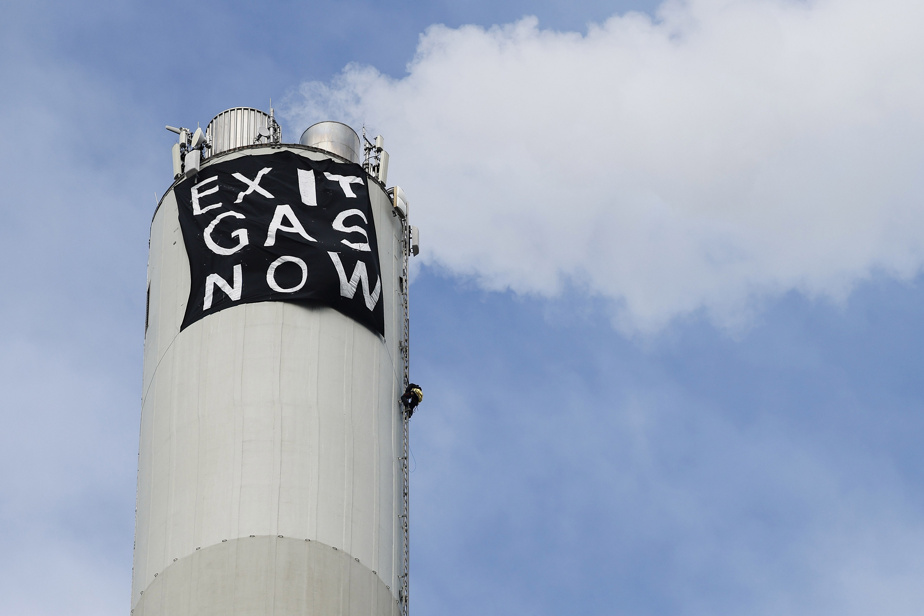For the past few months, the decarbonization of Quebec has become a national leitmotif that seems to rally all of Quebec. A little disputed position which however deserves to be put into perspective with the last ice storm which has just hit Quebec and more particularly the metropolis.
Certainly, in the face of the climate imperative, Quebec cannot be outdone, despite an overall exemplary record from a collective point of view. At the same time, we should not be fooled, because we all know that Quebec represents a negligible weight in the fight against climate change with its 80 million tonnes produced annually versus a world production of approximately 50 billion tonnes. In fact, we account for barely two minutes of production in a 24-hour day, a drop in the ocean.
To propose reducing our emissions by 40 million tons while global production will increase by 7 billion tons during the same period seems rather insignificant. In fact, the opening of one or two coal-fired power plants will be enough to annihilate all our efforts.
Thus, with several billion dollars a year, we are preparing to decarbonize Quebec for results, let’s face it, practically nil on a global scale, while our needs in health, education and housing are enormous. . Our schools are crumbling with mould, hospitals are overflowing while seniors and the homeless are left to fend for themselves. And we could easily extend the list of evils that plague Quebec.
Transport being our main source of emissions, billions will be swallowed up in it to electrify everything. Already, the major car manufacturers are being showered with $1 billion a year so that the wealthiest can drive an electric car (the equivalent of 4,000 social housing units). In just three years, a large part of the housing crisis could perhaps be solved for the benefit of the poorest.
Worse still, over the next few years, nothing less than 5 billion dollars will be devoted to the construction of garages and the purchase of 1,200 electric buses when we can no longer maintain a quality of service in terms of transport. collective.
And as if that weren’t enough, the Mayor of Montreal has decided to eliminate all natural gas consumption from her city within 20 years. Another false good idea according to Hydro-Quebec, which does not see how it could supplement this request.
The freezing rain that has just fallen on Quebec and the greater Montreal area is a great opportunity to question this position.
Wanting to decarbonize Quebec at all costs means depriving ourselves of large sums of money that could be put to better use, but above all it means jeopardizing our own energy security. Imagine in 2040 a Quebec without oil, without natural gas, what a dream. Unfortunately, we seem to forget that we live in a period of great climatic, computer, but also political and energy turbulence, as evidenced by the war in Ukraine with its energy repercussions on all of Europe.
Supporting our energy supply on such a fragile electrical network, as we were able to see again last week, is, some would say, audacity, while others will see an obvious lack of caution. . A few years of drought, another ice storm, a terrorist attack on a few strategic pylons or a computer virus would have incredible consequences that we hardly dare to conceive.
A simple network failure could dangerously paralyze entire regions, even the province as a whole. In the past year, Quebec has experienced three major power outages, and experts are predicting even more. In a totally decarbonized Quebec, this would translate into thousands of buildings and homes without heating, individuals without individual or public transport, and without access to police, ambulance and fire services equipped with electric vehicles.
Unlike European countries, Canada has access to an abundance of energy resources, including oil, gas, uranium and electricity in all its forms. In a context of great global instability, it would be risky not to take advantage of this advantage. By decarbonizing, it is more or less this security that we give up, without changing anything about climate change, while neglecting the quality of our social services.
Is there really anyone in the room to think that reducing our consumption by 40 million tonnes per year will insulate us from environmental upheaval?
Giving up is not the solution. Leading our fights on other fronts and other continents would seem more judicious and promising. For example, almost half of Africa’s population does not have access to electricity, and within 15 years the population there will increase by almost a billion people. Leaving the development of this continent in the hands of coal producers would be catastrophic for all of humanity. Investing our billions there would undoubtedly be more beneficial from an environmental and moral point of view.
Decarbonizing Quebec is no more and no less clearing our conscience, while making sure to maintain our standard of living by continuing to export our pollution to poor countries. A bit like giving a dollar to a homeless person and imagining that we are making our honorable contribution to the plight of the homeless.
It would be easy to see in this decarbonization nothing more than a form of state greenwashing that comforts us in our immobility. Faced with multiple development challenges and with all the failures in the fight against climate change, it is clear that “the truth is elsewhere”.

